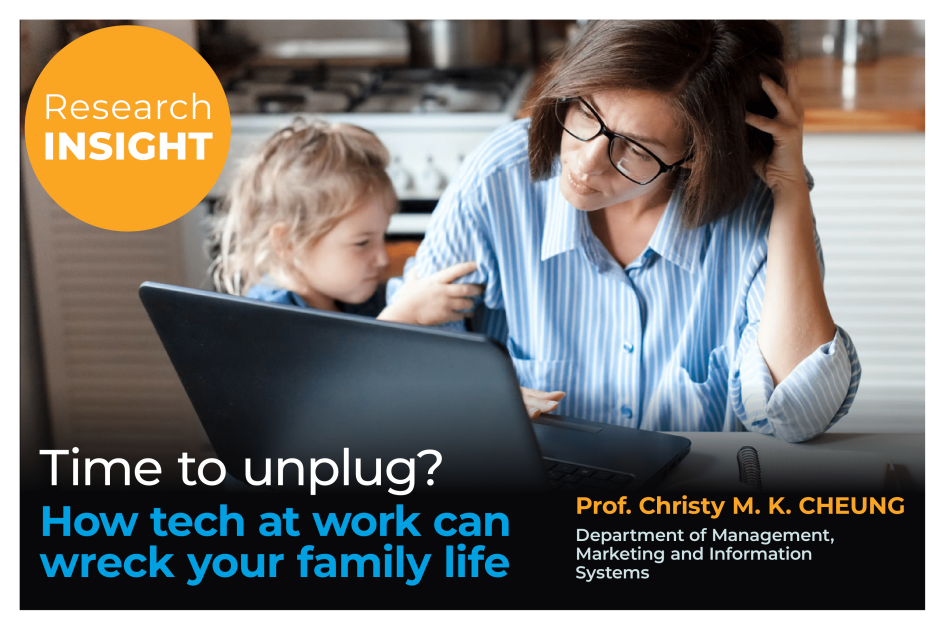Recent developments in information and communication technology have blurred the line between the workplace and the home, a process further accelerated by the widespread adoption of “work-from-home” during the COVID pandemic. Meanwhile, an increasing number of employees say that they would opt for a better work-life balance over a higher salary, while reports show that work–life conflicts are the main reason for quitting, a decision often taken due to technology-induced stress which extends to the home. What can employers do to keep workers happy while harnessing the power of technology? Investigating stressful experiences caused by individuals’ inability to cope with information systems in a healthy manner, a recent paper[1] discusses the impact of technostressors – effects associated with the use of technology such as overload, invasion, complexity, insecurity, and uncertainty – on work-family conflicts.
If most technostressors are considered harmful to employees, others can also help workers achieve a better work-life balance such as when an employee learn new skills to make her more effective. At the same time, conflicts between work obligations and family duties often cause both poor performance at the office and strife at home. Indeed, having to finish a report over the weekend may prevent a mother to attend her child’s football game (work-to-family conflict) while a visit to ER may force a father to skip work on Monday (family-to-work conflict). Since work obligations are more likely to interfere with family life than vice versa, it makes sense to focus on these when looking at the technostressors’ impact on family conflicts.
Findings from data collected on 268 employees considered frequent IT users – such as those involved in customer care, online search and business operations – at eight Asian companies involved in the service industry confirm that most technostressors contribute significantly to family conflicts. For example, working overtime – now a normal part of many jobs – not only invade on family time, but acts as a conduit through which negative work emotions spill over to disrupt family life. However, certain technology-related activities – those shown to create “good stress” – may actually improve family life, especially when employees perceive these as opportunities for personal growth. Motivating employees and inducing a positive sense of accomplishment, these tech-related activities enable us to go back home with a big smile instead of a depressed frown.
The lessons are clear. In a world starved of talent, firms need to work harder to use technology in ways that enhance – or at least not negatively impact – the family life of their employees. Managers need to frame technostressors as growth opportunities and strive to avoid interrupting their staff’s weekends and holidays. After all, the family life of these managers is at risk too!
Reference:
Shi S., Chen Y. & Cheung, C.M.K. “How technostressors influence job and family satisfaction: Exploring the role of work–family conflict”, Information Systems Journal, 2023;1–33.

